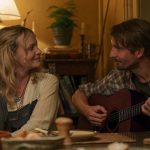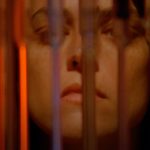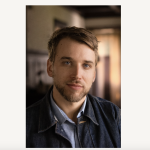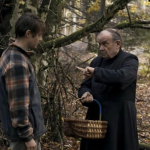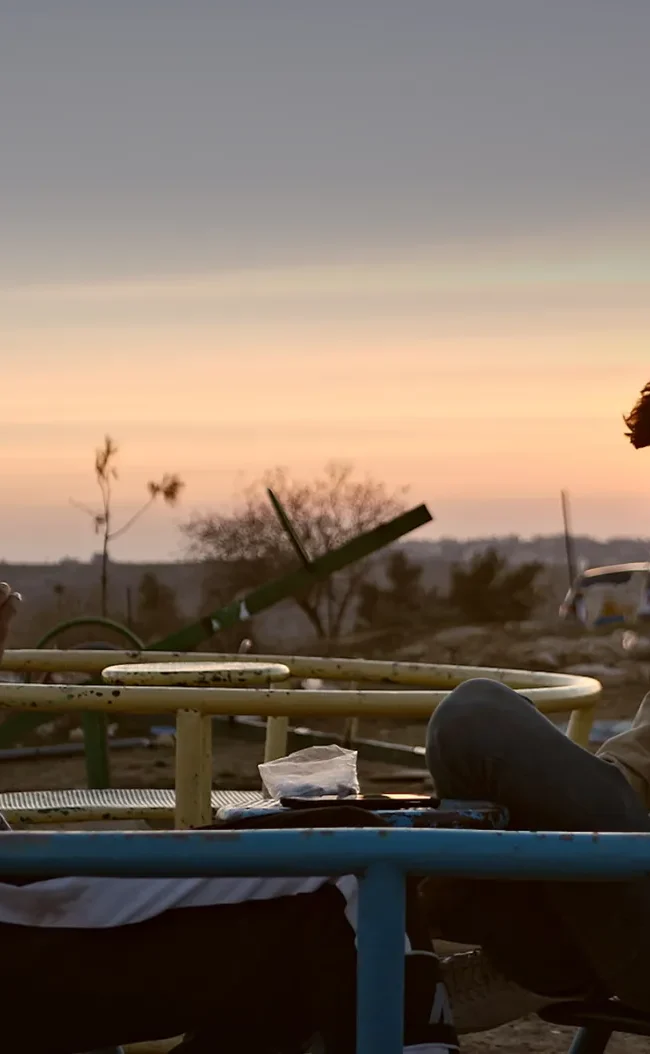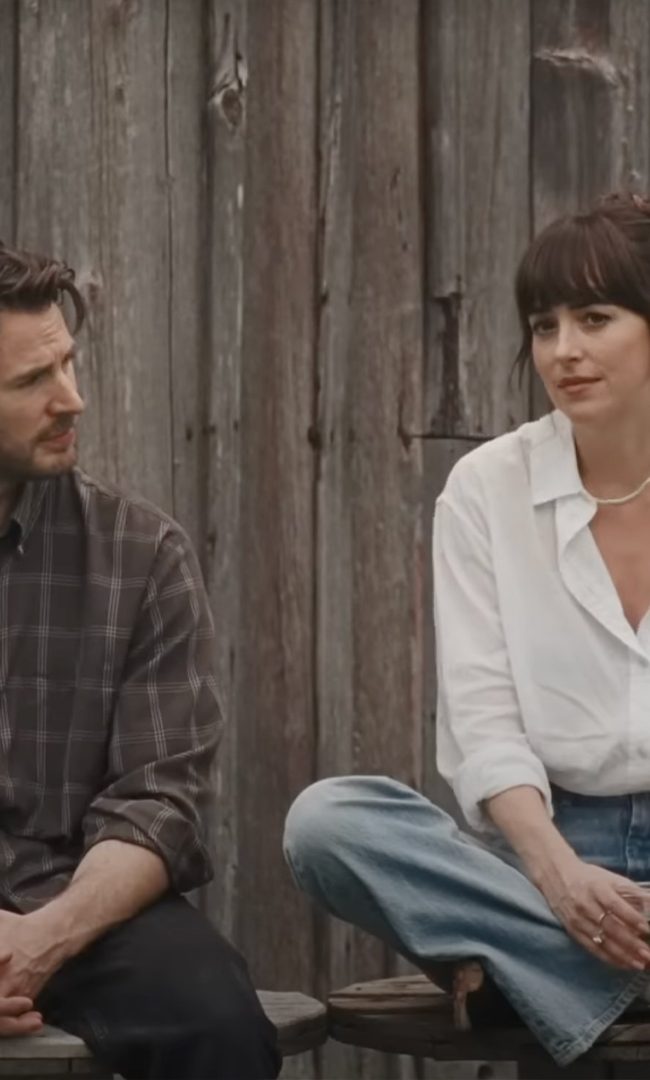A Conversation with Lana Wilson (LOOK INTO MY EYES)
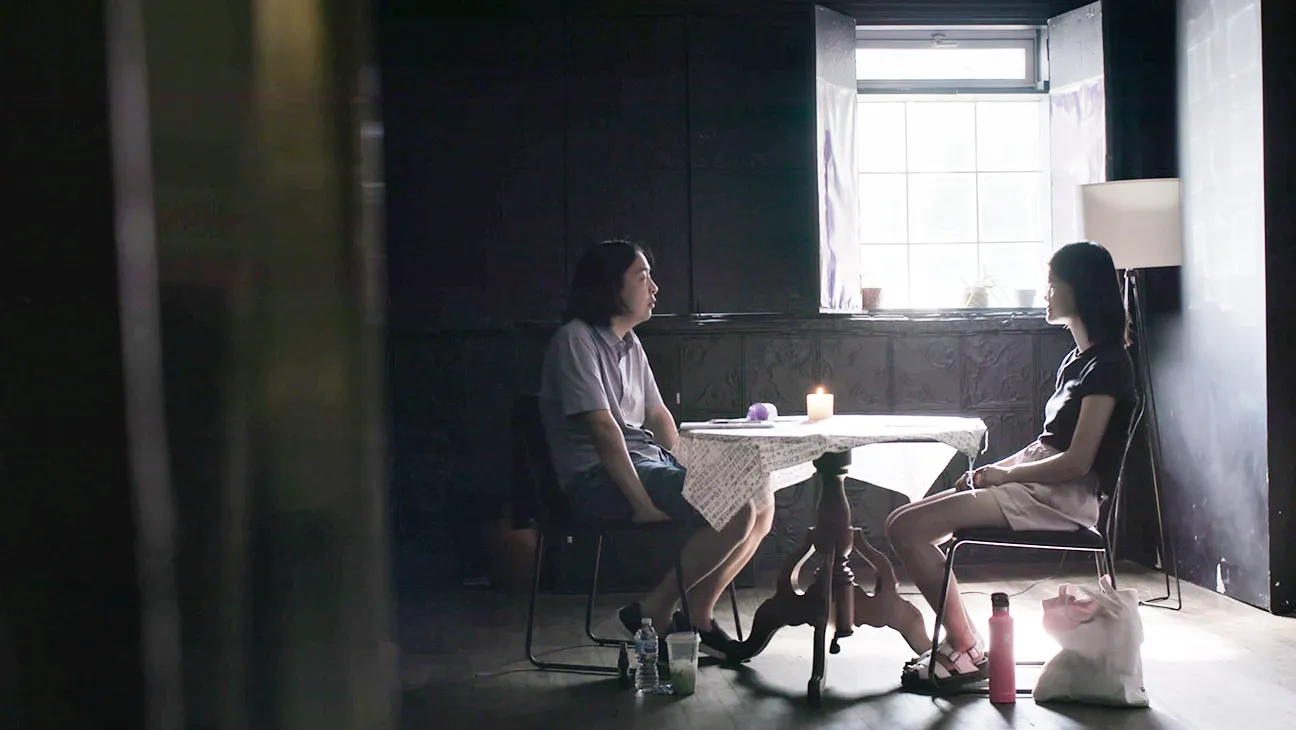
In Lana Wison’s controversial new documentary, Look Into My Eyes, she trains her lens on real-world psychic sessions. Readers may be surprised to hear that I am interested in the occult and that I collect rare tarot card decks. I do not think these people in this film are actually communicating with the dead, but they clearly all have a strong intuition. Calling them ‘frauds’ would be a harsh word, though you may find yourself rolling your eyes at times. Wilson asks some of the right questions, but I would have liked the documentary to probe further into the negative aspects of this pseudo-therapy versus a licensed therapist. Some people feel closure and emotional release talking with a clairvoyant, but the doc could have explored more of the ethical gray area of duping people into thinking they are talking to their dead relatives. (They do a good job of this in the fellow Sundance ‘24 doc Eternal You). Still, I found Look Into My Eyes entertaining and I wanted to speak with Wilson about the project and keep an open mind. At the end of the interview, I had the director choose a tarot card at random from Aleister Crowley’s famous THOTH tarot deck (c. 1969). The results speak for themselves. Read til the end to find out the meaning of the card.
*The following interview was edited for length and clarity.
Hammer to Nail: Looking at my questions, I realize I may come across as a skeptic. But I do believe in mystical forces and psychic forces.
Lana Wilson: I welcome believers and non-believers alike.
HtN: Watching the movie, I did not feel you were trying to expose these people as frauds, but that the film was more of a loving portrait of the type of characters who go into this line of work. Was there a kinship you felt with the psychics that made you want to tell this story?
LW: During the pandemic, I went with some friends to get a reading myself. I am a lifelong skeptic, I didn’t grow up religious. One day I went into a psychic shop, I surprised myself that I was there, and I surprised myself in finding comfort in the reading. After that experience, I realized it didn’t matter so much if I believed literally in what the psychic was saying or not, it was more about this personal emotional experience that I had during the conversation. When looking for the psychics in the documentary, I first started with storefront psychics, but some of them asked me for thousands of dollars to participate. Anyone who felt disingenuous is not in the movie. I did not want to make an exposé of psychics. I don’t make investigative films, I leave that to journalists. The seven people I gravitated towards, we chose because I connected with them. We turned out to have the same books on our bookshelves, we love the same movies, and the same art. I learned over the course of filming they had similar experiences of loss, with grief, or early formative trauma that brought them to see a psychic in the first place. They have so much in common, you can cut between them because there is so much connecting them all. I found this shared story in an odd and surprising way.
HtN: A lot of these folks took classes or training to become psychics. Did the classes not allow you to film in them? And what sorts of methods do they teach?
LW: I don’t know because I haven’t been to the classes. I filmed one of the psychics doing an intuition exercise with a room full of people. You would imagine a fruit or imagine a country and the other person would try to guess it. For the film, I wanted to focus on the readings. I was more interested in the big picture experiment, starting with the clients and then slowly revealing the main characters, who are the psychics. In a way, your experience of watching it IS the narrative. Some moments will feel magical, some moments you may think, ‘This psychic is really bombing.’ I hope people compare it to a religious belief system. How is this different, how is this similar?
HtN: I like how you thrust the audience directly into the sessions with no exposition, that was a great technique.
LW: Thank you.
HtN: Did any of the psychics in the film connect with any of your deceased loved ones?
LW: No…
HtN: …Because I remember one scene where they didn’t connect with the person they were supposed to be reading, and they asked if what they said was relevant to anyone else in the room. I’m thinking about the kid with the skateboard.
LW: Some of the best screenings of the film so far were these amazing screenings in Warsaw. Anyone who is Polish agrees that the past is still present, especially in a city like Warsaw. That was one of the reasons it connected so deeply with the Polish audience. At the end of this screening, all of these people came over and said, ‘The boy with the skateboard is here!’ There was this young man with a skateboard sitting in the front row watching the movie. They were so excited. You get this image, and maybe you don’t connect with it at all, but it gives you this interesting thing that you are thinking about and looking for later. That just speaks to us as human beings searching for meaning.
HtN: The woman who learned to talk to animals at Kripalu. Was she joking when she said she intuited a cat’s UTI? Because it got a big laugh in the theater.
LW: I don’t think she’s joking but I think she also finds it very funny. She recognizes part of this is hilarious. She could not have been more skeptical going into this, she is not a touchy-feely woo-woo person at all. She went to this animal communication class and she loved it, and kind of followed that. One thing I find so fascinating about her–and with animals in general–it made me realize how our pets often become metaphors for us or projections of ourselves. One of my favorite scenes in the film is when she’s talking to this guy about his lost lizard, Bobby Jr. He’s worried the lizard isn’t as happy in his new home as he was with him. And Phoebe, the psychic, doesn’t say it’s fine or you should go get him back, she says, “No, the lizard is less happy now and also it’s over, you need to let this go.” And I thought that was such a powerful metaphor for processing death. He’s moving on but you still have this relationship with him because he is impacting you. We can agree or disagree about whether there is a ghost in the room or not, but we can all agree that people or pets who are gone, are still affecting us.
HtN: You’re not advocating for psychic readings as a replacement for traditional therapy, but do you see any value therapeutically that someone couldn’t get from a licensed therapist?
LW: I know that therapy can be inaccessible for a lot of people, especially financially. Therapy was invented by white European men. There are a lot of people I know who don’t feel comfortable in a therapist’s office. Or they have religious practices of their own that they don’t want to separate from a therapeutic exchange. Maybe they want to bring their religious beliefs into therapy and a therapist won’t indulge that. One of the psychics in the film, Nikenya, used to be a therapist. You see her counseling diploma on the fridge at one point. The reason she moved into this is she wanted to bring her spiritual side into her work more. She loves therapy and understands why it is secular, but she wanted to do something different and I can understand that.
HtN: Clearly all of the psychics in the film possess a keen intuition, but did one of them in particular have the most powerful connection with the spirit world?
LW: I can’t say that, what if they read this?!
HtN: I know you can’t pick your favorite. But maybe one that particularly shook you?
LW: One that really shook me was the psychic Per with the shaved head, early on in the film when he says ‘You like Shrimp…’ and the guy says, “I do like Shrimp, I ate it every day for 365 days in a year.” It was like, “Whoa”… and what does that say about this person who placed a bet and was willing to eat Shrimp every day?
HtN: Wild that he pulled out that word…I really like the title of the film. Do psychics still say that? Is looking into your eyes a way into someone’s soul?
LW: I never witnessed anyone saying that, but I wanted it to be the title because I wanted to center human connection and I also wanted to play with the parallel between client/subject and psychic/director. The camera setup is actually not a direct eye-line, it’s slightly off like a conventional interview. It’s only in the final seconds of the film does something happen to puncture all of that. What’s most interesting about psychic sessions is they can be both artificial and real at the same time – and the same can be said about non-fiction cinema. It’s constructed, it’s put together, but it’s also real.
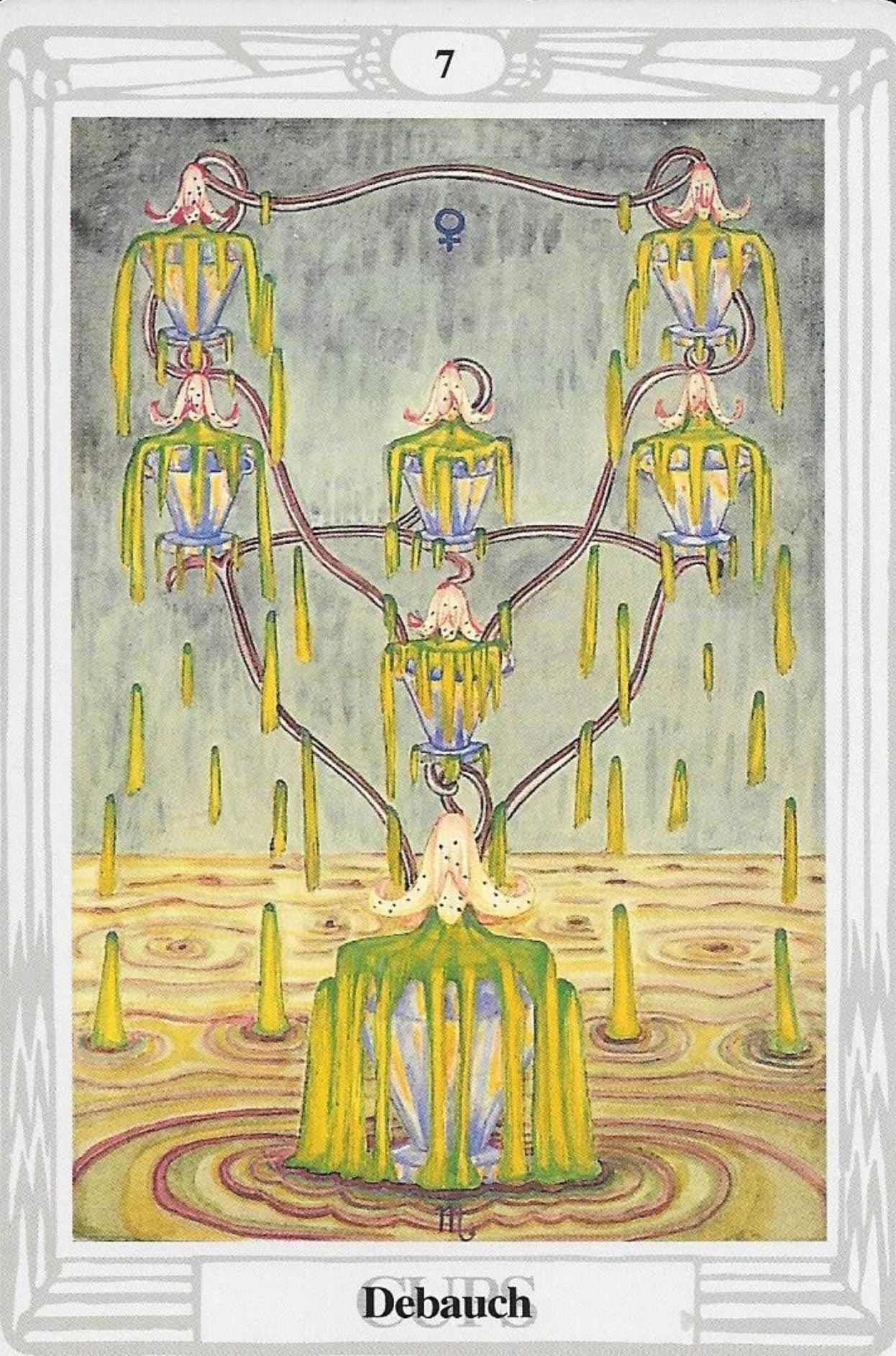
The Seven of Cups talks of the human desire to experience the unknown, the subconscious, the wish to escape the plain old reality and find a better world somewhere in fantasy. But it shows clearly the dangers of such mind games, when the dreaming turns into a hapless runaway from life. The success is illusionary, just a deception or wishful thinking. In its best aspects, the Seven of cups is a warning to recognize the delusion, the disguises, to get rid of the intoxicating feelings and face up the facts.

